The Case Against Him
I have written voluminously and freely about Guns N’ Roses since I had my first column at L.A. Weekly. I’m now writing a book about the band. I could write a doctoral dissertation on GNR, but alas, I’m here to let my keyboard bleed. I’m here to talk about how Axl Rose—my generation’s Johnny Strabler, the bike-gang leader played by Marlon Brando in The Wild One—has become an unintentional servant of a political agenda. How’d that happen? Axl became…“woke.”
I first submit to you a provocative, not-so-woke image—Axl Rose, 1989, as he wraps chains around the wrists of his then-girlfriend, before proceeding to gag and whip her in a bondage scene. Glimpsed in brief flashes, Rose’s S&M act is the template for a Guns N’ Roses video promoting “It’s So Easy”—a video MTV decided not to air.
The footage illustrates the moral framework from which vintage Rose, once America’s most unrepressed rock star, should be understood.
Embodying an aesthetic creed that combined feminine ferocity with rampaging male lust, Axl Rose, as the video testifies, savagely stops across the stage of the Cathouse club, wearing a plaid kilt and skull-print leather jacket, howling into the mic, while a swarm of groupies tear away bits of his clothing.
For America’s youth, he delivered a machine-gun aria that tore through their ears, mowing down the lecturing housewives of Washington. Thirty years later, Rose is a wealthy, bourgeois Democrat, lawyered-up, and serving as the politically correct CEO of an American corporate rock machine.
For countless pimple-faced teenagers in an age before memes, hashtags, internet porn, or first-person shooters, it was a way to feel unrepressed and wild—catching a glimpse of Axl Rose on MTV, imagining what it would be like to be him.
Here, in videos, songs, at the concerts, was a ginger psychopath who owned an Uzi semiautomatic and once told his fans at the Ritz in New York that he was dedicating “Out Ta Get Me” to prudes who “tell you how to live,” who “tell you how to talk…people who tell you what you can and you can’t say.”
Axl Rose is now an ally for the people he once ranted against. He wears a slick fedora, designer jeans from Barneys, reflective sunglasses, and occasionally carries a cane, like Picasso, at one of his opulent art shows. He’s a completely different person. Appetite for Destruction-era Rose had the lean, tattooed physique of a hungry featherweight boxer, the face of a teen idol, and the always-running mouth of a hillbilly Rocky Sullivan, the gangster ex-con, played by Jimmy Cagney, in the movie Angels With Dirty Faces. Rather than bravely riding off into the sunset with his outlaw persona pushing him further towards the grave—à la Motörhead’s Lemmy Kilmister—Axl Rose now exists as a status-quo liberal.
Yes, the guy Danny Sugerman, Jim Morrison’s biographer and author of a book about Guns N’ Roses, once described as “symbolic of the wild and free west” has been anointed by the media as ”woke,” a characterization he doesn’t deny, and probably embraces. Today’s Axl Rose is as a moralist, one who wants his fans to view the Trump administration as ”disgraceful” and ”inappropriate.” It’s ironic, to say the least, given that the zenith of his popularity resulted from Rose being both disgraceful and inappropriate.
I struggle to reconcile the ungovernable Axl Rose I remember from my childhood (engrained in memory is a 1989 RIP magazine cover showing him brandishing a riot-grade shotgun between his legs, a phallic representation of his machismo) with the current, millennial-friendly version—a Twitter celebrity with a Chihuahua avatar who advocates for corporate Dems and functions, witting or not, as a liberal-media propaganda tool.
“WELCOME TO THE LIBERAL JUNGLE” crowed the far-left online publication The Intercept when it ran a “Woke Axl” op-ed in early 2018, using the line to tempt GNR fans to sign up for their newsletter.
Axl Rose in 2019 is shiny currency for the left, given today’s fashionable contempt for Trump and the amount of online attention that comes with being a celebrity member of the “resistance.”
Whatever his degree of actual wokeness, it would be reductive to think tagging Rose with the “w” word sums him up in full. But, as stated, he accepts the characterization. Why? First, it strikes me as a deft career move since it gives the media a headline redirecting the gaze of anyone who might focus on Rose’s past transgressions—his politically incorrect statements, the lawsuits and allegations against him from former romantic partners who say he could be both loving and brutish. As long as Axl Rose continues to send out the occasional anti-Trump tweet, and stories on his wokeness drive clicks, the media, and liberal social media influencers who have no interest in revisiting the Axl Rose of the eighties and nineties.
Judging from a variety of clues that appeared over the years, Rose naturally evolved into a progressive following a long period of guilt and isolation. The singer had demons—their source goes all the way back to his childhood—and psychotherapy and extended self-analysis domesticated him. This multi-year “night of the soul” saved his life, while killing his vintage allure. Like others rock stars have had to kick a heroin habit to survive, Axl Rose had psychic demons to contend with, and he’s seemingly purged them from his body.
“Vote Blue…Bitches!!” Rose tweeted last October, shortly before the midterm elections.
And yet, in 30 years of public life, Rose never endorsed a political candidate, rocked the vote for MTV, contributed to a campaign, or allowed popular politics to dictate his work. Search GNR’s catalog for political lyrics and you’ll turn up just a generalized 1990 antiwar song “Civil War,” and allusions to Communist repression in the song “Chinese Democracy.” There’s not a single Rose interview that clarifies his political views in any detail, except for a mention on Jimmy Kimmel Live in 2012 that he liked Barack Obama, but wasn’t someone who voted.
Rose was 50 then, and apparently had never entered a voting booth. When George W. Bush was carpet-bombing Iraq and building the framework for a police state with the Patriot Act, Rose was silent. In 2008, the year Chinese Democracy was released, America was sunk in an economic recession protested by millions and fighting two elective wars overseas. The album’s liner notes thanked the Trump Hotel, but included no mention of President Bush or the body count in the Middle East.
Earlier, Rose was silent during the administrations of Ronald Reagan and Bush Sr. And during the political triangulations and Monica Lewinsky-stained Clinton years (roughly 1998 to 2000), he was, essentially, hidden from sight in his Malibu canyon mansion, struggling to free himself of the rage that had long defined his persona.
It’s also worth noting that “Woke Axl,” with his wealth, name recognition, and huge, international fan base, has so far restricted his progressive activities to sporadic minutes at the keyboard, tweeting, doing none of the harnessing of music celebrity for activist causes in the way of someone like Bono, or Roger Waters.
But for the left in 2019, all of this is irrelevant. Rose is woke, and willing to use his platform to communicate their message. Whatever the exact definition of woke, it clearly constitutes obedience to liberal dogma and a rejection of the First Amendment.
From the outside, it’s hard to calibrate how much of Woke Axl reflects a true awakening, as opposed to a winning PR strategy. But classic Rose is gone, having vanished during his time out of the spotlight. Though he hasn’t self-identified as woke, the fact that he can be used to advance retrograde elitist propaganda signals a time of mourning for the Guns N’ Roses fan who remember a different Axl.
“I think Axl’s a little out of control,” MTV’s Kurt Loder once said, “which is the way you should be if you’re going to be a big rock star…. You should out of control.”
Two days before the November midterms, Woke Axl—the nickname thrives as a meme—tweeted that Guns N’ Roses played “anti-Trump” music, a bizarre statement. I suppose an argument can be made for viewing Appetite for Destruction as a blowtorch cutting across the steely conservatism of the 1980s, but—and I don’t know if Rose himself realizes this—Donald Trump is not a conservative. He’s a radical.
Vintage Guns N’ Roses, if you ask any fan, was apolitical. The band’s spirit was lubricated by cheap wine, masculinity wrestling with androgyny, and a motorcycle-gang effigy to the First and Second Amendments. Axl Rose in leather assless chaps, slithering across the stage like a lithe, Tom of Finland illustration of a biker boy—a long-locked, Dionysian icon; an escape from the Wall Street-themed world for the hair-metal generation.
When Axl Rose did get political, he did it with mischievous fashion choices. He strutted onto a stage in Paris in 1992 wearing a baggy leather jacket emblazoned with the Confederate flag, paired with white spandex shorts and combat boots.
This followed by four years the song “One in a Million,” where he cavalierly used the N-word, and advertised his disdain for both immigrants and “faggots,” saying they made no sense to him. Boiling with a primitive honesty, he kicked down the doors of political correctness, and then stomped around in his snakeskin boots.
“I don’t like boundaries of any kind,” he told Rolling Stone in 1988 when asked about ”One in a Million.” He added, “I don’t like being told what I can and what I can’t say.” Who could have predicted that today’s Axl Rose would be thoroughly repulsed by the Axl Rose of 1988?
Back then, Rose’s reckless inability to be his own publicist was intoxicating to so many of us, raised by the censors of cable TV and the canonized propaganda of a Christian majority. Rose was actually pushing MTV towards anarchy.
Fast-forward to 2019, and Rose is now a willing ally of a movement that aims to repress sensuality, muzzle speech on college My struggle with this led me to email a reliable voice, writer Chuck Klosterman, and Chuck was ready with thoughts. Here’s one of his observations about Woke Axl:
“To me, the most amusing aspect of all this is imagining what would have happened if you’d have walked up to a liberal person in 1989 and said, ‘You know what? In 30 years, the man who will embody and voice the views of young progressives will be Axl Rose. But you know who all those young progressives will despise? Morrissey.’”
Axl Rose now attacks the likes of First Lady Melania Trump, whom he described as “an alleged former hooker” in a March 2018 tweet. Here we have him virtue-signaling by referring to a conservative woman as a “hooker,” which pushes him further away from the right-wing image of Axl Rose equipped with firearms and Middle American naiveté.
In an era where careers can be extinguished by exposure of past tweets or decades-old comments, and where even the most inconsequential act is used by liberals to smear people they disagree with, Rose has managed to duck the pitchforks and torches of the mob by, well, never disagreeing with them. While Metallica’s James Hetfield chats openly with Joe Rogan about his heretical libertarian lifestyle as a hunter and heavy-metal rebel, Rose tweets from a distance using cute emojis as punctuations for fashionable outrage.
In the fall of 2017, when actress Ashley Judd accused Harvey Weinstein of sexual harassment in a New York Times interview, it was a watershed moment that helped unleash #MeToo. Right around this time, the media decided that Axl Rose had not only demonstrated at least vague solidarity with #MeToo, but had in fact joined the cause, a grotesque take invented and propagated by activists at publications like Vogue and The Intercept.
When “Woke Axl” headlines reached GNR fan sites and podcasts, some Axl Rose worshippers began pandering directly to their hero with their hashtagged Trump resistance—a phenomenon akin to the way Taylor Swift fans not only worship Swift but every Swiftian opinion.
A week after his “alleged former hooker” post, Rose tweeted, “Happy International Women’s Day!!” One would assume the left would find the singer’s feminist rebrand to be a bit hypocritical…but that’s not how the left operates. As long as Rose uses his 1.2 million Twitter followers to push his fan base further left—and as long as he can convince his agreeable fanboys to vote, like Taylor Swift on Instagram—he remains beyond the burning glow of the torches.
This will hold, of course, only if Rose continues to comply. If he does disagree with the left by defending free speech on college campuses or tweeting about offensive or “sexist” comedians he might enjoy, he would likely ignite a campaign of self-ruination that would turn his record-breaking reunion tour into a tragic coda.
“Woke Axl” requires that Axl never detail his political beliefs. Since GNR reunited in April of 2016, Rose has refused to grant an interview to a single member of the American media. Not only that, but it seems any interview he or Slash do offer (Rose has spoken to a couple foreign reporters) is accompanied by a liability agreement or pre-interview guidelines that put the journalist and media venue on the hook if the coverage creates a publicity storm.
Not unlike the documents handed out in Weinstein’s Hollywood, Rose’s lawyers also draft and enforce non-disclosure agreements (NDAs) to be signed by those who enter the singer’s orbit, preventing people from talking about him “in perpetuity.”
And some of those who have been in Axl’s orbit but haven’t signed an NDA tend to stay out of sight—inaccessible and untouchable—whether out of fear of GNR and its singer or in mimicry of Rose’s own career-long war against the media.
During last year’s marketing of GNR’s Locked N’ Loaded box set, a celebration of the band’s Appetite-era work, the Guns N’ Roses equivalent of a book burning occurred.
First, the track “One in a Million” was curiously left off the collection of demos and remasters—while remaining on streaming services like Spotify. Why? Rose was silent.
This silence continued as some of his fans were doxxed, bullied, and ostensibly buried on the internet by a small group of trolls, with some alleging the trolls were either hired by Rose’s management or simply driven by their own toxic fandom to coordinate an online takedown of an entire library of rare concert footage, documentaries, and GNR bootlegs—material the band couldn’t profit off or control during the Locked advertising blitz.
The trolls, it seems, directed the RIAA and IFPI (the Recording Industry of America and International Federation of the Phonographic Industry, respectively) to remove additional copyrighted GNR material off YouTube. Fans panicked on the forums, mystified by a purging whose questionable copyright-violation claims were, and remain, a mystery.
For more conspiratorial fanboys, GNR had become “Big Brother.” For others, though, GNR was on the “right side of history,” and some anti-Trump Axl stooges celebrated as YouTube channels like the popular Frans N’ Roses were reported and removed.
Meanwhile, Axl Rose, apparently unconcerned or uninformed on the matter, proceeded to drag Trump on Twitter and refused to shed any light on how he became a progressive culture warrior, except to let us know, passive aggressively, that he’s repulsed by “One in a Million” and wants to bury his uncomfortable past (along with his demons).
Today, the left-leaning media uses Axl Rose to recruit. For the first time in history, the singer of Guns N’ Roses has become a role model for liberal America.
Pardon me while I vomit all over my keyboard.






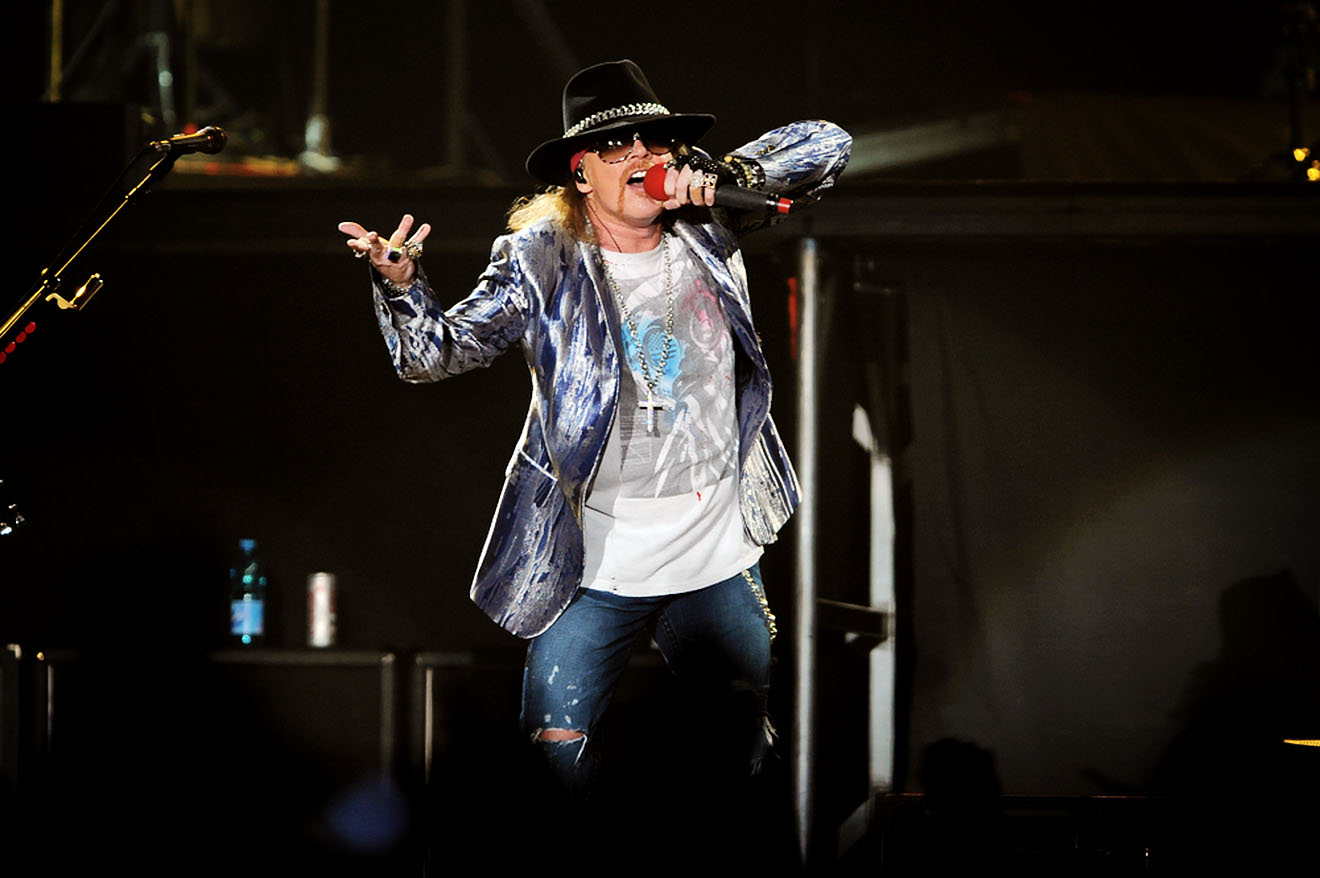




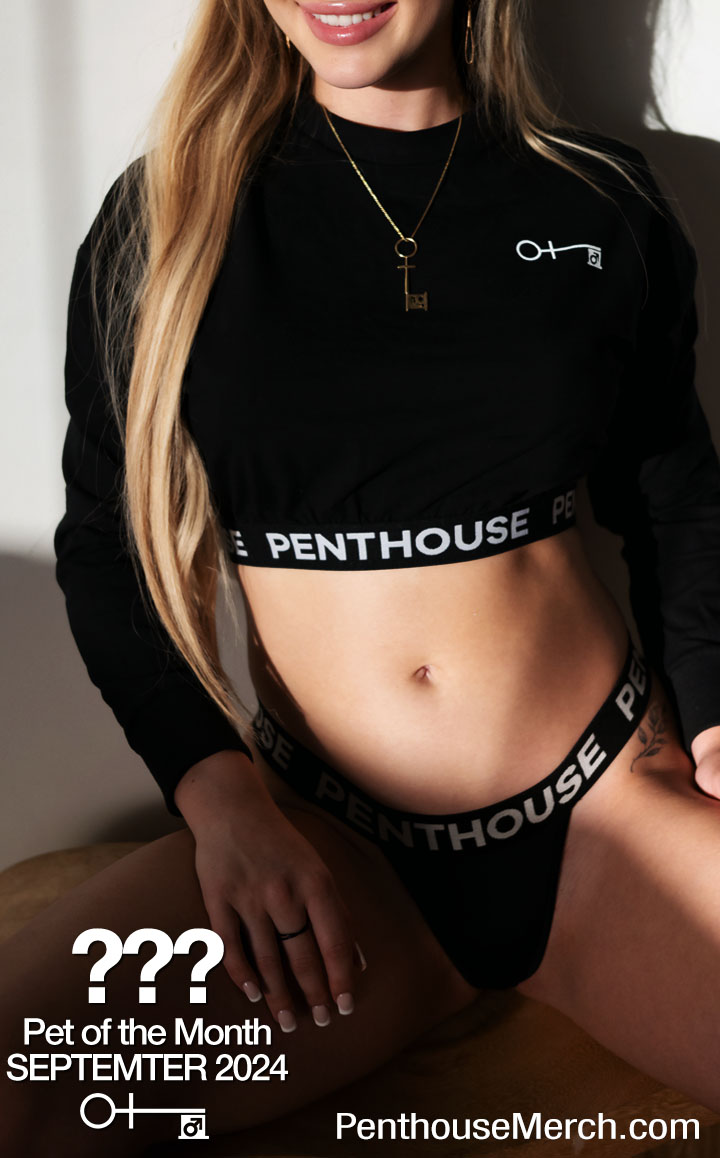

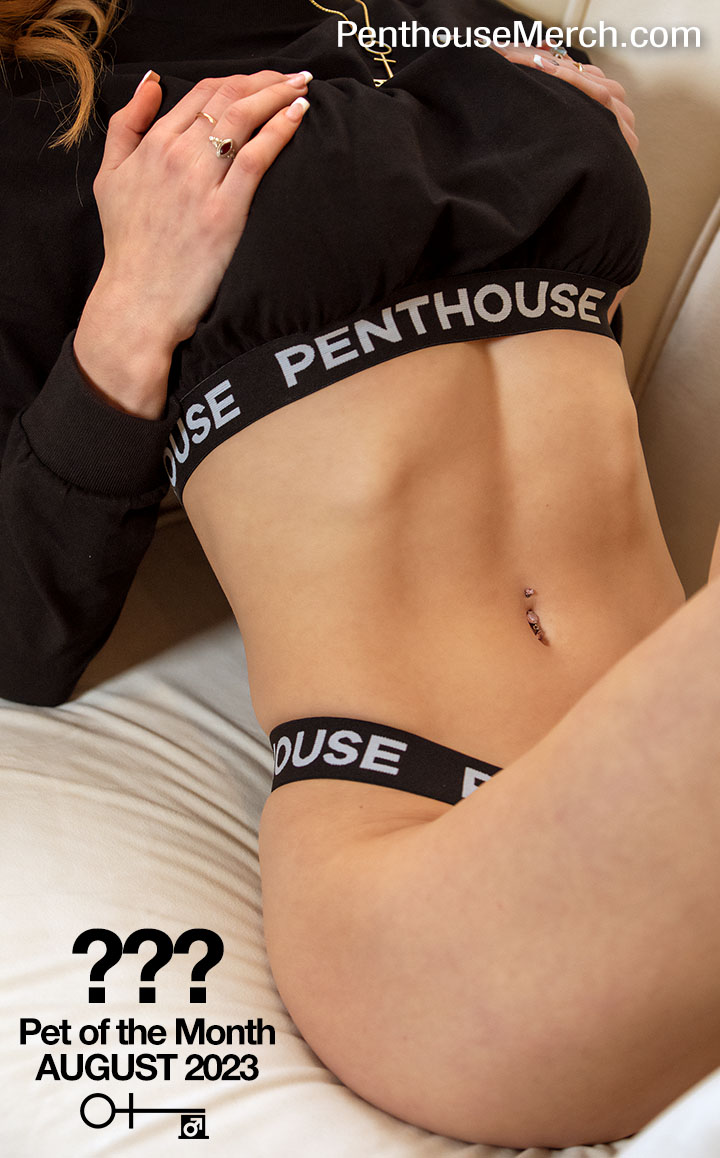
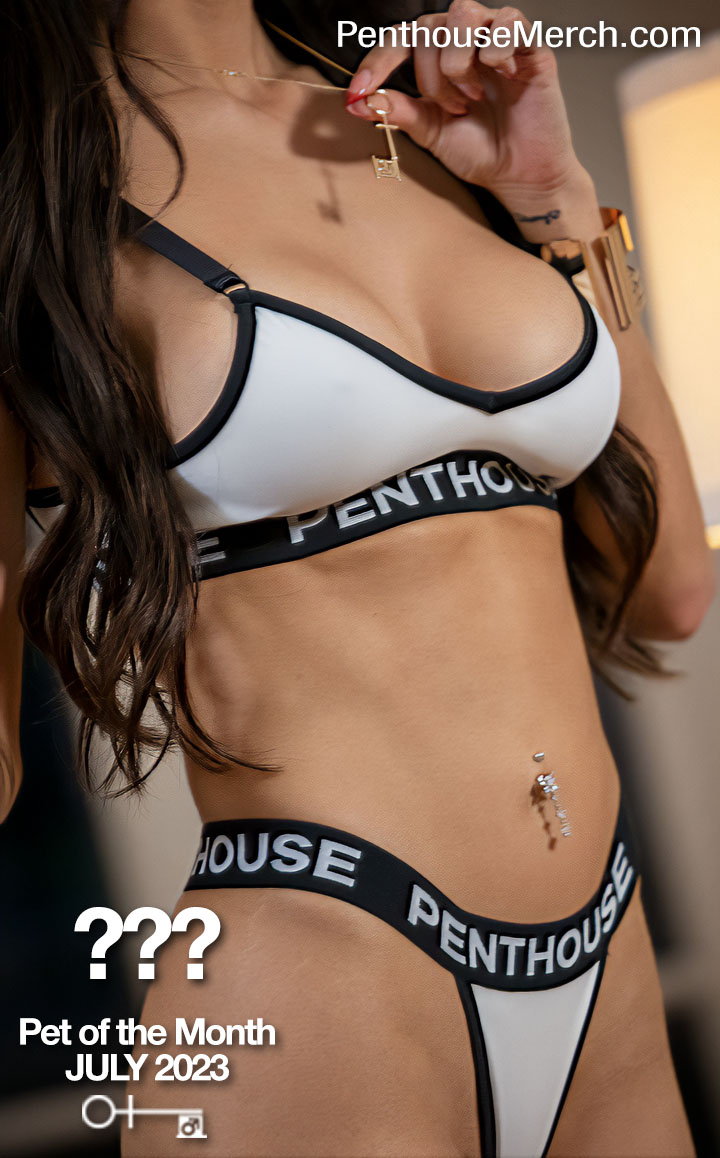
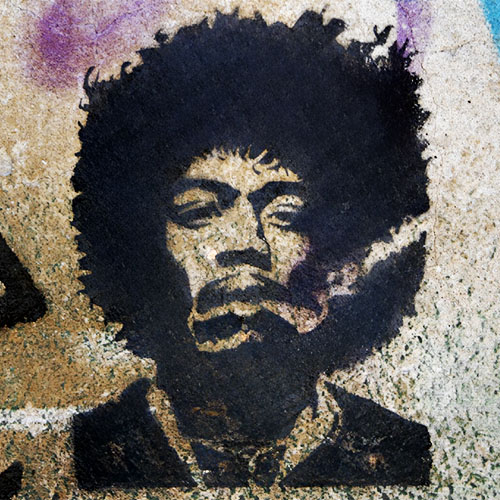




One thought on “Woke Axl Rose”